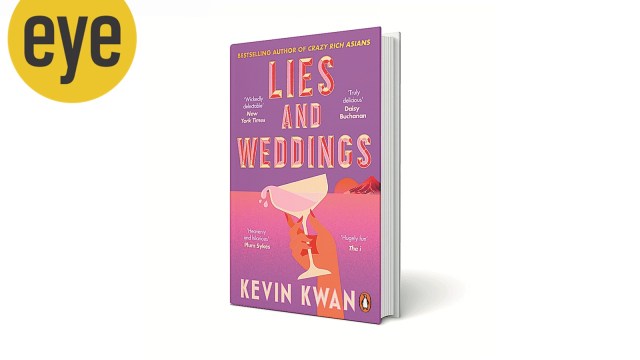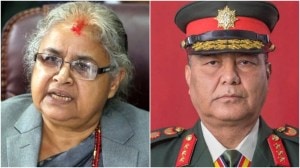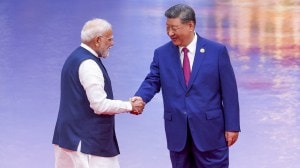In Lies and Weddings, Kevin Kwan explores the aspirational lives of the Chinese diaspora during a decadent celebration in Hawaii
Behind the frothy descriptions of upper-crust life are astute observations on a new generation of confident Asians
 Choosing between love and money has been an enduring theme in classical literature (Credit: Amazon)
Choosing between love and money has been an enduring theme in classical literature (Credit: Amazon)Sprawling extravagance is a genre in and of itself, one that writer Kevin Kwan has painstakingly honed over three, entertaining satirical narratives. Back in 2009, Crazy Rich Asians introduced the world to the excesses of well-heeled Singaporeans with some clever digs at the West (‘Aiyoooh, finish everything on your plate, girls! Don’t you know there are children starving in America?’). For most of history, the intrinsic superiority of generational wealth, aristocracy and rank has been beyond question. Kwan subtly turned the focus to a new rising class of billionaire Easterners who are refuting the time-tested values of hierarchy, their nouveau ambitions being the glamorous centrestage that originally belonged to European nobility.
Indeed, in the social media era, it’s extreme wealth that ordains cultural worth (note, the relentless fascination for the Ambani and Bezos nuptials). A democratic redistribution of money has fast-tracked the decline and fall of the aristocratic ideal, making it easier for anyone with oodles of money to swan around in fashionable circles. It’s precisely these (wannabe) glittering lives of the Chinese diaspora that Kwan explores again in Lies and Weddings, during a decadent destination celebration in Hawaii.
From the outset, the alternative universe of the one per cent inhabiting Kwan’s novel seems like an enchanted kingdom with flowing champagne and cocktails made with Devonshire elderflower and plum wine. Every effort has been made towards creating the ambience of a free-spirited bacchanal, if only the guests weren’t so strangely insecure about the impression they were making. Each character is introduced by the brands they’re donning and the degrees they possess — worthy armour one presumes — in the unspoken battle of one upmanship. Once the reader gets past descriptions of over-coiffed guests on the magical island, the superficial veil lifts to reveal that there’s plenty of devious machinations going on behind the scenes.
Rufus Leung Gresham, the future Earl of Greshambury has a niggling problem that might explode any minute. His family fortune, the legendary Gresham Trust, has been depleted by decades of profligate spending. While his fashionable relatives lounge luxuriously in Vogue centre-spreads and carefully planted Instagram stories display the family’s vast estates, their massive debts are silently mounting. A reminder that embellished feeds can cleverly conceal the gaps between appearance and reality. However, the grand matriarch (always a terror in Asian families) isn’t about to let the inconvenient issue of insolvency interfere with her illustrious clan’s reputation; the couture-clad countess plots and intrigues to use the occasion of the eldest Gresham daughter’s fabulously opulent wedding to unleash her eligible son on a series of young heiresses present at the ceremony.
Choosing between love and money has been an enduring theme in classical literature; the dashingly handsome Willoughby ditched the impetuous heroine Marianne in Jane Austen’s Sense and Sensibility for not having an inheritance. In Emily Bronte’s masterpiece Wuthering Heights, Catherine’s decision to marry Edgar Linton for social advancement leads to disastrous consequences. Over a century later, Earl Gresham faces the same conundrum — is securing the family’s precarious financial future more important than following his heart? There’s the French hotel heiress with honey-blond tresses and a royal bloodline, or a tattooed venture capitalist genius whose billions could fix things immediately; but the earl fancies his childhood friend, the girl next door. The quandary of this eternal predicament unfolds between endless references to Gucci and Valentino, which, if it’s meant to be a commentary on conspicuous consumption, fair warning, gets tedious. An audience that’s grown up on Gossip Girl and Succession are well versed on the luxe-porn theme; reams on private jets and dazzling couture are apt to make the reader a tad impatient now.
It’s only when tone-deaf grandeur is used as a take-off point to examine a character’s motivations does the reader gain some understanding of why people behave the way they do. Lady Arabella, the Earl’s mother had borne the ignominy of being classified as the nanny while walking her half British daughter. The ordinary Hong Kong girl who snagged a British viscount was spurred on by the casual racism she faced to become England’s trendiest hostess. Interior designers admiringly called her style “Arabella chic” to which Lady A noted, “I was the first to mix brutalist furniture with wicker.” Lies and Weddings has a lot of characters and alternating back-and-forth timelines that sometimes makes it confusing to follow. But behind the frothy descriptions of upper-crust life are some astute observations on a new generation of confident Asians, who are comfortable grabbing the spotlight.
The writer is director, Hutkay Films
Photos



- 01
- 02
- 03
- 04
- 05



























